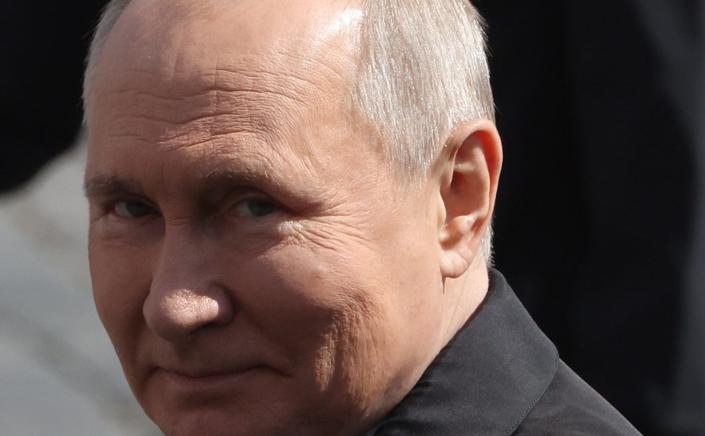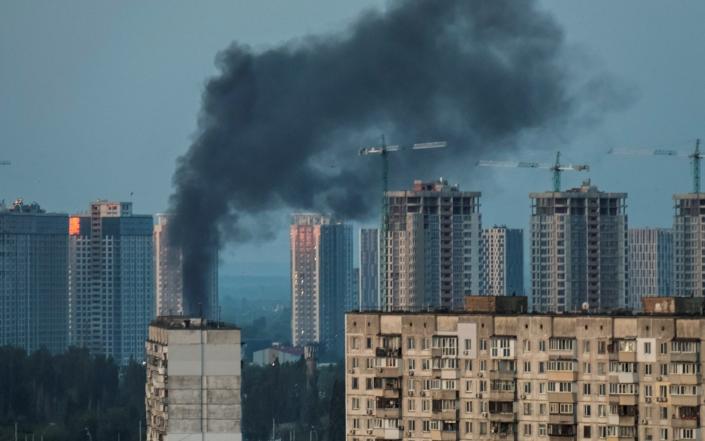
Today on Ukraine: The Latest, we report on Ukraine’s limited gains around Bakhmut, a freight train derailed in occupied Crimea, and videos from the battlefront of Ukrainian tank tactics. Plus, we reflect further on the legacy of World War Two and why autocracies often fail in longer conflicts.
Assistant Comment Editor Francis Dearnley begins by summing up another heavy day of bombardment for Kyiv:
According to the Ukrainian military, their air defences successfully shot down 29 out of 30 Russian cruise missiles in overnight attacks. The strikes targeted various areas, including Kyiv and the southern city of Odessa. Officials claim that one person lost their life and that two others were injured in the Odessa strikes. However, in Kyiv, reportedly, all the cruise missiles were intercepted and neutralised by the air defences.
Commenting on the significance of these ‘failed’ strikes, Francis continues:
The Secretary of the National Security and Defence Council of Ukraine has emphasised that ‘Kyiv remains Putin’s relentless and unachievable target’. He points out the symbolic significance of the capital being attacked by Russian missiles, albeit not with the effectiveness that Putin intended, given he’s been advertising these hypersonic missiles as game-changers which have not proved capable of proving as devastating as he hoped.
Later in the episode, chemical weapons expert Hamish De Bretton-Gordon joins the panel, lending his thoughts on the all-important nuclear question:
I think one of the very positive things to come out of Ukraine conflict so far is that the nuclear bubble has been completely burst. The fact that these hypersonic missiles have been knocked out so easily really matters – they are a key part of Putin’s strategic and tactical nuclear arsenal. Yet now everyone knows they are not really viable.

War in Ukraine is reshaping our world. Every weekday the Telegraph’s top journalists analyse the invasion from all angles – military, humanitarian, political, economic, historical – and tell you what you need to know to stay updated.
With over 30 million downloads, our Ukraine: The Latest podcast is your go-to source for all the latest analysis, live reaction and correspondents reporting on the ground. We have been broadcasting ever since the full-scale invasion began.
Ukraine: The Latest‘s regular contributors are:
David Knowles
David is Head of Social Media at the Telegraph where he has worked for almost two years. Previously he worked for the World Economic Forum in Geneva. He speaks French.
Dominic Nicholls
Dom is Associate Editor (Defence) at the Telegraph having joined in 2018. He previously served for 23 years in the British Army, in tank and helicopter units. He had operational deployments in Iraq, Afghanistan and Northern Ireland.
Francis Dearnley
Francis is Assistant Comment Editor at the Telegraph. Prior to working as a journalist, he was Chief of Staff to the Chair of the Prime Minister’s Policy Board at the Houses of Parliament in London. He studied History at Cambridge University and on the podcast explores how the past shines a light on the latest diplomatic, political, and strategic developments.
They are also regularly joined by the Telegraph‘s foreign correspondents around the world, including Joe Barnes (Brussels), Sophia Yan (China), Nataliya Vasilyeva (Russia), Roland Oliphant (Senior Reporter) and Colin Freeman (Reporter). In London, Venetia Rainey (Weekend Foreign Editor), Katie O’Neill (Assistant Foreign Editor), and Verity Bowman (News Reporter) also frequently appear to offer updates.
Listen to Ukraine: the Latest, The Telegraph’s daily podcast, using the audio player at the top of this article or on Apple Podcasts, Spotify, or your favourite podcast app.
[ad_2]
Source link







